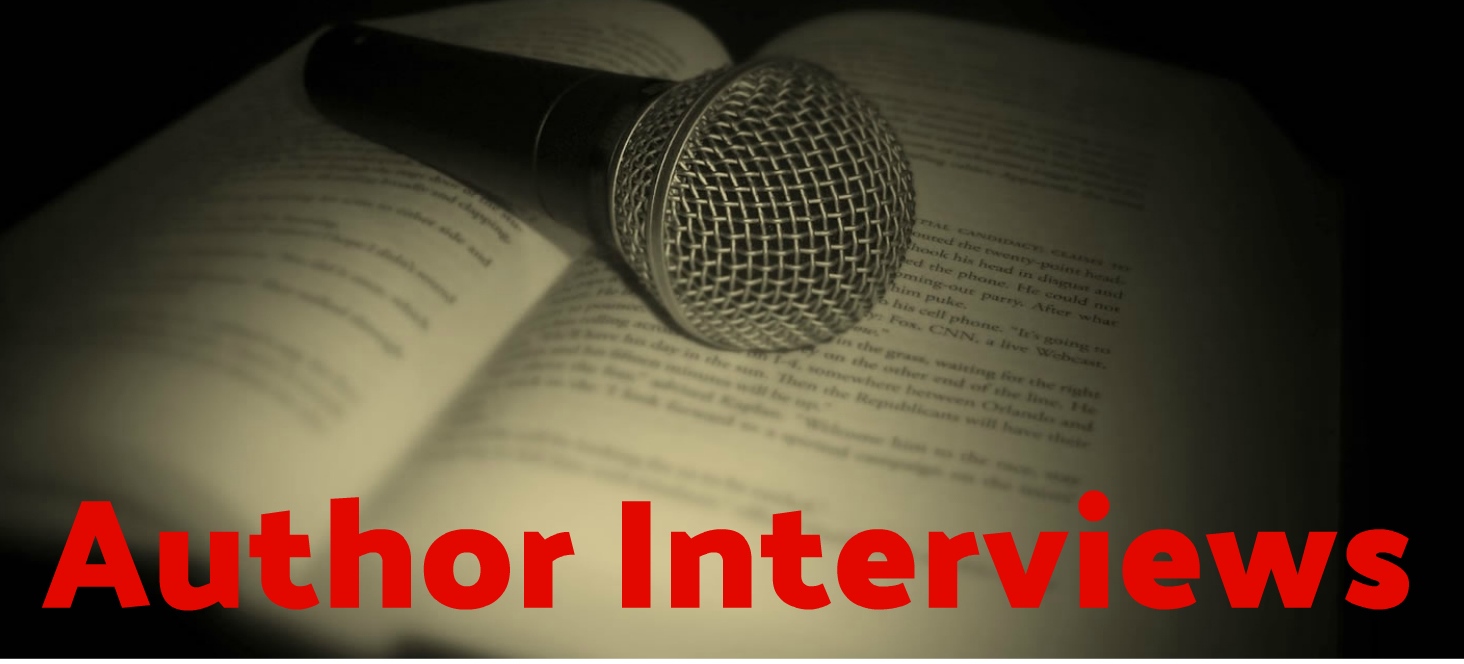
In-Depth Discussions with Today's Darkest Talents
Kealan Patrick Burke: Tales From the Midlist
By, Blu Gilliand
Kealan Patrick Burke is the award-winning author of several novels and novellas, including Currency of Souls, The Turtle Boy, and Vessels, as well as two collections of short fiction, Ravenous Ghosts and The Number 121 to Pennsylvania. Burke is 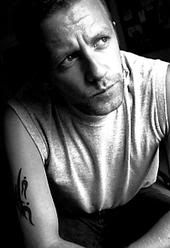 also an accomplished editor of anthologies, having produced titles such as Night Visions 12, Taverns of the Dead, and Quietly Now. A film based on his short story “The Quiet” is currently in post-production, and Burke’s website was named “Best Writer’s Website for 2007” by Writer’s Digest.
also an accomplished editor of anthologies, having produced titles such as Night Visions 12, Taverns of the Dead, and Quietly Now. A film based on his short story “The Quiet” is currently in post-production, and Burke’s website was named “Best Writer’s Website for 2007” by Writer’s Digest.
In Midlisters, his newest novella out now in limited-edition hardcover from Biting Dog Press, Burke crafts a fascinating character study of a writer rising in the ranks and warns of the innate dangers of being blinded by our own insecurities. Dark Scribe Magazine recently caught up with the busy Ireland-born scribe in between unpacking boxes from a recent move.
Dark Scribe Magazine: Most of our readers are no doubt familiar with you and your work, but let’s start with a quick overview of how you got in the writing business. How long have you been working seriously at your craft?
Kealan Patrick Burke: I guess that would depend on how you strictly you define “seriously.” I’ve been writing with a view to publication since I was eight years old, and started submitting to any publisher I could find not long after. This continued until the publication of my first short story when I was eighteen. But it wasn’t until I moved to the States in 2001 that I was afforded the opportunity to just sit and write and see where it got me. And here we are. So all in all, I’d say I’ve been writing seriously all my life, professionally since 2001.
Dark Scribe: What was your first published story, and where did it appear?
Kealan Patrick Burke: The story was called “Praying for Angels” about a boy locked in the attic and abandoned by his 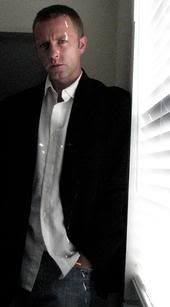 mother. He perseveres by eating rats and drinking rainwater, and ultimately is steered toward revenge by a golden-haired girl he sees dancing in the yard below his window. It was awful, but at eighteen years of age, I didn’t know that. It appeared in a short-lived Irish magazine called Writings.
mother. He perseveres by eating rats and drinking rainwater, and ultimately is steered toward revenge by a golden-haired girl he sees dancing in the yard below his window. It was awful, but at eighteen years of age, I didn’t know that. It appeared in a short-lived Irish magazine called Writings.
Dark Scribe: Were you trying to break into bigger, more mainstream markets from day one? Or did you first set your goals toward small press publications and publishers while working to find your voice and style?
Kealan Patrick Burke: To be honest, I never knew there was a small press, mass market, or anything else. I just wanted to write books and hoped someone would publish them. Constant searches for magazines/publishers I thought might be receptive to my work definitely helped educate me.
In 2001, I picked up a copy of the Cemetery Dance edition of Richard Laymon’s The Traveling Vampire Show and saw the publisher’s contact information at the back, so I sent out a query. I didn’t realize the book was a small press edition. It just looked like a beautifully crafted hardcover to me. Of course, I am well aware of the distinction now, and while mass-market success is an eventual goal, I'm very happy to be published at all. But yes, I definitely 'grew up' in the small press arena, and had the chance to hone my style and find my voice, even as I sent queries out to the mass-market houses in New York.
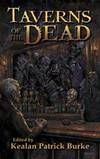 Dark Scribe: Is it fair to look at the small press arena as a training ground for writers? Or is it more accurate to say it’s a place where more varied, less mainstream types of writing can find a home?
Dark Scribe: Is it fair to look at the small press arena as a training ground for writers? Or is it more accurate to say it’s a place where more varied, less mainstream types of writing can find a home?
Kealan Patrick Burke: I would say both are correct. It was definitely a training ground for me. Without the editorial input of the many small press editors I've been fortunate enough to work with, my work would be a lot less disciplined. I also found rejection there and quickly learned to cope with it, to get back on the horse armed with determination rather than just sit around whining about my "genius" going unrecognized.
I would agree also that some of the best work being published finds a place in the small press, and 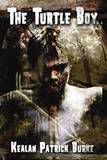 indeed, many writers who suspect their work won't – or can't – fit in the current climate at the majors will submit their books to smaller publishers, where they'll know it'll be treated right and reach an appreciative audience. Smaller print runs also means the publisher can devote more attention to each title, and you can't beat being asked for your input on all aspects of the book's production.
indeed, many writers who suspect their work won't – or can't – fit in the current climate at the majors will submit their books to smaller publishers, where they'll know it'll be treated right and reach an appreciative audience. Smaller print runs also means the publisher can devote more attention to each title, and you can't beat being asked for your input on all aspects of the book's production.
Dark Scribe: When you sit down to write, do you work with a specific market in mind? For example, do you say “Okay, this is my Cemetery Dance story, and this is my Subterranean Press novel,” or do you simply write the story and figure out where it fits afterwards?
Kealan Patrick Burke: I never write anything with a specific market in mind. Even if I've been invited to send 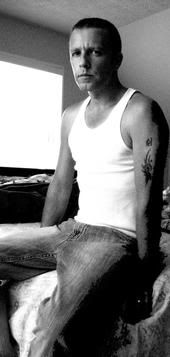 something to a themed anthology, quite often the story I planned to write is not the one that comes out. So I write the story first, then figure out where it might fit best afterward. Worrying about who's going to publish something before you've even written it could drive you mad.
something to a themed anthology, quite often the story I planned to write is not the one that comes out. So I write the story first, then figure out where it might fit best afterward. Worrying about who's going to publish something before you've even written it could drive you mad.
Dark Scribe: Do you approach a story or book with either the small press or a mainstream publisher in mind? What, in your mind, are the distinctions between the two – in other words, what would work for a small press that wouldn’t work for a New York house, and vice-versa?
Kealan Patrick Burke: I'm really not clear on what kind of a project would work for which market, but sometimes you just get a sense after finishing a book that it has mainstream appeal, or limited appeal. I would say my most recent novel, Kin, is a mainstream novel, though I didn't set out for it to be that way. Conversely, Currency of Souls isn't a book that's likely to see a mass-market release anytime soon, as it's really a pulp-action-pseudo western-horror novel, so would be tough to market to a wider audience. Then again, I could be wrong. If only we could predict what the publishers want...But to answer the first part of your question: no, I never write with "mainstream" or "small press" in mind. I just write.
Dark Scribe: In your recent novella Midlisters, the main character, Jason Tennant, professes to hating fellow novelist Kent Gray "because he was a better writer." While many different fears are eating away at Tennant, this one seems to hold 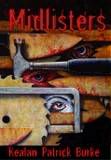 the most power over him. What is your greatest fear as a writer?
the most power over him. What is your greatest fear as a writer?
Kealan Patrick Burke: My greatest fear is waking up one day to find that I can't write, that the desire to write is gone, or that I just can't make it work anymore. I went for a long time without writing, but knew the ability was still there. If I discovered one day that the ability was gone, I don't know what I'd do. Probably become a clown. My wife thinks I'd make a good one.
Dark Scribe: How much of the Jason Tennant character comes from your own personal experiences as a writer?
Kealan Patrick Burke: I wove some of my own background into that story, particularly during the sequences in which we get to see Jason's childhood, though I embellished quite a bit of it so it wasn't too close. But to address a few of the questions I've been asked since the book came out: No, I don't hate any other writer or begrudge them their success; no, I didn't meet my wife at a book signing, and no, I've never been to a convention in which someone was castrated. But I think – and many of the reviews have pointed this out – much of the fun of Midlisters is trying to figure out how much of it is real, and how much of it is simply fiction, though of course, fiction is never simple.
Dark Scribe: I recall that, at one point, you were working toward turning the Tim Quinn series of books (The Turtle Boy, 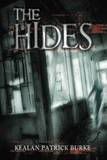 The Hides, Vessels) into a novel for a mainstream publisher. What’s the status of that project?
The Hides, Vessels) into a novel for a mainstream publisher. What’s the status of that project?
Kealan Patrick Burke: It's completed, and shelved, I'm afraid, after languishing on an editor's desk for close to two years. Long waits like that should be expected, I suppose, but I don't have the patience for it, so I withdrew it and stuck it in a drawer, where it will sit, maybe forever, unless a publisher I trust asks to see it.
Dark Scribe: What kinds of changes were going to have to be made to make the project a reality?
Kealan Patrick Burke: There were minor changes. The kind a writer feels compelled to make after a few years away from a book. No major changes in style, but I wrote 20,000 words into it to connect the parts and make it work as a standalone novel. It came together very well, I think.
Dark Scribe: Are you, or would you consider, making changes to your style or content to make it friendlier to the large publishing houses?
Kealan Patrick Burke: I'm not sure I could change my style, but if the request was something I approved of and thought  would benefit the project, then I'd certainly give it a shot. I'm always open to changes in content if I think they make the book better. If not, I'll fight tooth and nail against them. Invariably though, I have found that most editors are correct with their suggestions, and even when I've been unsure, I realize once I incorporate them, they do indeed improve the book. Editors are seldom out to wreck your work, and a good editor is worth any amount of money.
would benefit the project, then I'd certainly give it a shot. I'm always open to changes in content if I think they make the book better. If not, I'll fight tooth and nail against them. Invariably though, I have found that most editors are correct with their suggestions, and even when I've been unsure, I realize once I incorporate them, they do indeed improve the book. Editors are seldom out to wreck your work, and a good editor is worth any amount of money.
Dark Scribe: What are you working on at the moment?
Kealan Patrick Burke: I suffered a forced dry spell recently due to the fact that we bought a house and moved out of the old rambling farmhouse where everything to this point was written (The Turtle Boy is like a tourist guide for the surrounding area).
But as of right now, there's about 25,000 words written in the final Timmy Quinn book, Nemesis. I'm also outlining Ire Land, a crime noir story set in, you guessed it, Ireland, about a man released from prison who has to infiltrate one of the most violent areas of Dublin to save a son turned gangster.
There are some stories due by the end of the year that I'm under pressure to get done. One of them, a novella entitled May-December, is shaping up to be something very different, and very creepy, so with any luck I'll have that wrapped by deadline. In addition, I have started another tale called Meredith, a psychological horror story that wants to be a novel, so we'll see what happens.
As is usually the case with me though, there's every chance that by this time next year, I'll have written two novels and ten novellas that weren't mentioned here, and the ones that were will be on the back-burner.
Dark Scribe: What should we expect to see released over the coming months?
Kealan Patrick Burke: There's a novel on the way that I'm quite excited about, but I can't yet say much more than that. I've also just turned in a new novel to a publisher, and to my agent, so with any luck that will see the light of day soon. Other than that, you can expect to see the usual short stories, novellas, etc., until you're all sick to death of me.
Dark Scribe: What have been the most important lessons you’ve learned so far in your career, especially as you work towards breaking into bigger, more mainstream markets?
 Kealan Patrick Burke: That I'm only one writer in a shoal of them, swimming against the current and hoping like hell the jump will be long and high enough. I've also realized that writers are curious creatures, and if there was any sense in the world, we'd all be lined up and shot, to put us, and the rest of the world, out of our misery. We're an odd lot, some odder than others, but the urge to create is as destructive sometimes as the most lethal of drugs. We're slaves to it, and it can erode everything around us if it isn't handled with care.
Kealan Patrick Burke: That I'm only one writer in a shoal of them, swimming against the current and hoping like hell the jump will be long and high enough. I've also realized that writers are curious creatures, and if there was any sense in the world, we'd all be lined up and shot, to put us, and the rest of the world, out of our misery. We're an odd lot, some odder than others, but the urge to create is as destructive sometimes as the most lethal of drugs. We're slaves to it, and it can erode everything around us if it isn't handled with care.
I've also been astounded by the abundance of talent that abounds in the small press, and goes largely ignored by the majors. I suspect perhaps if those New York editors spent a few days paddling around in our pond, they might be surprised by what they find.
Until then, we'll keep on writing the good write.
For more on the work of Kealan Patrick Burke, visit his official author website and MySpace page.
Author Photos: Jennifer Burke



